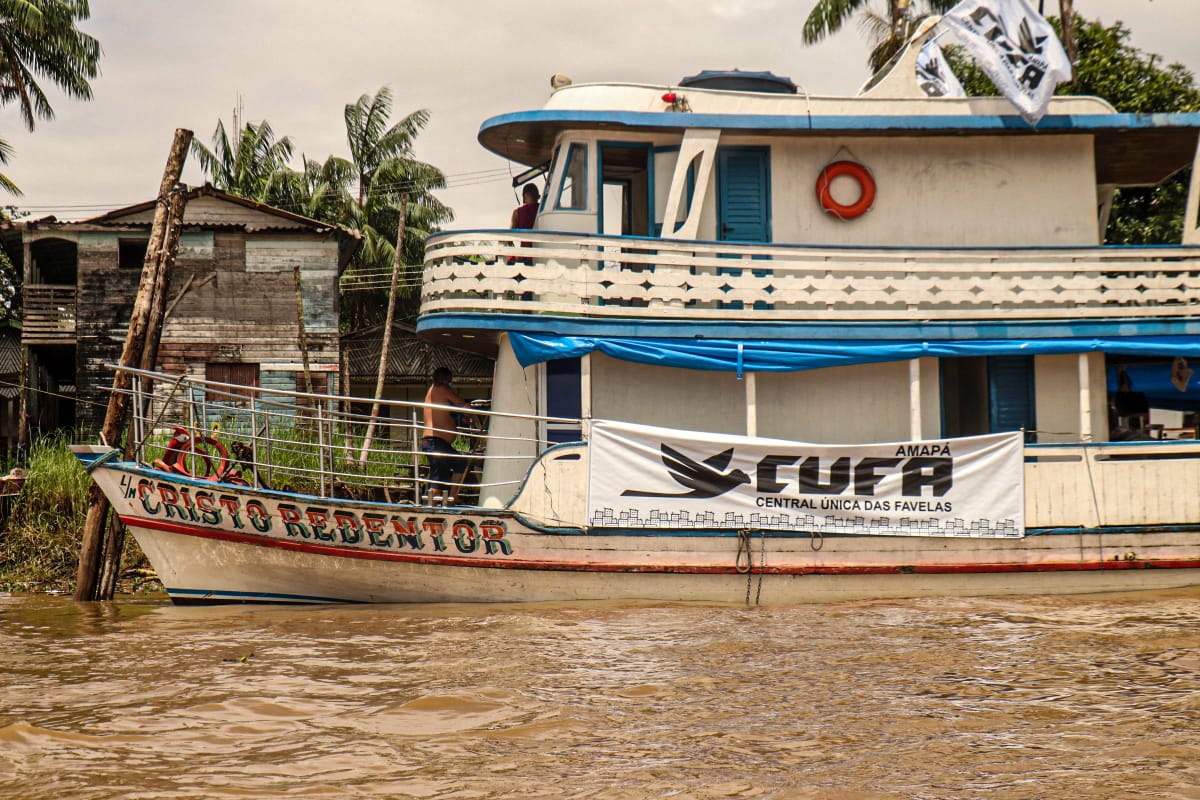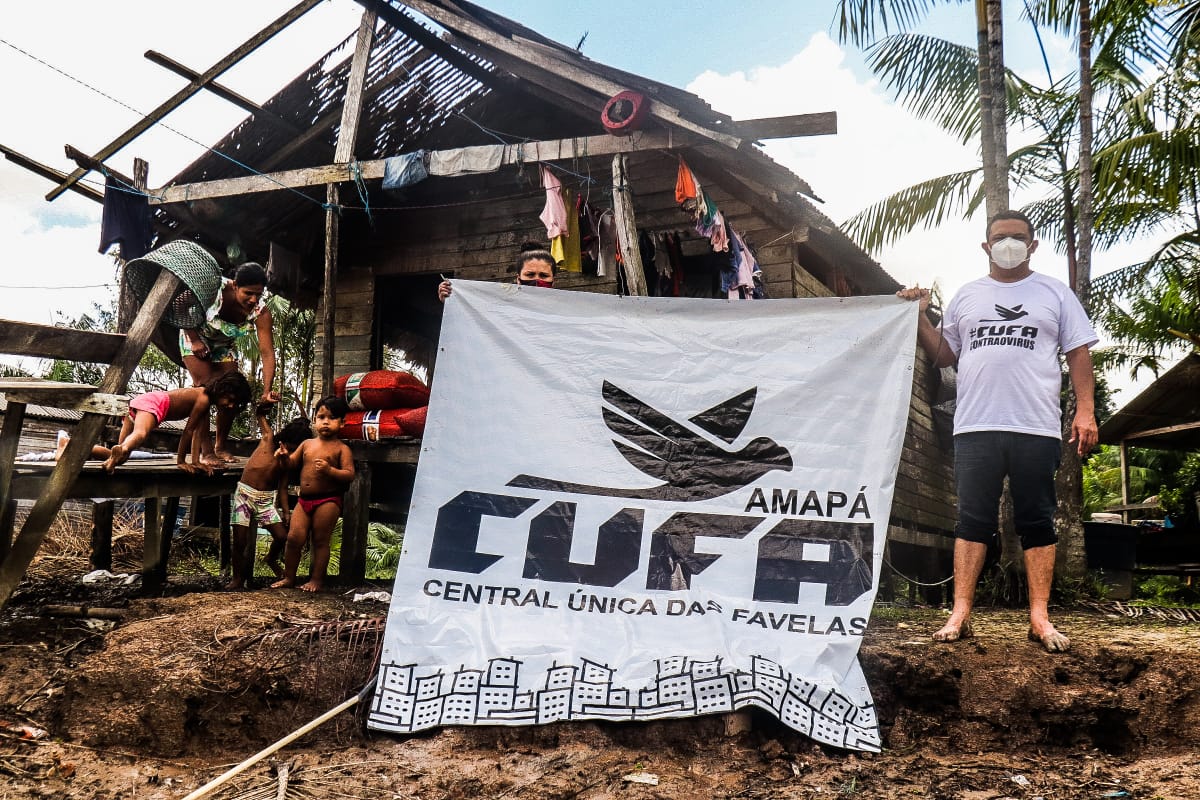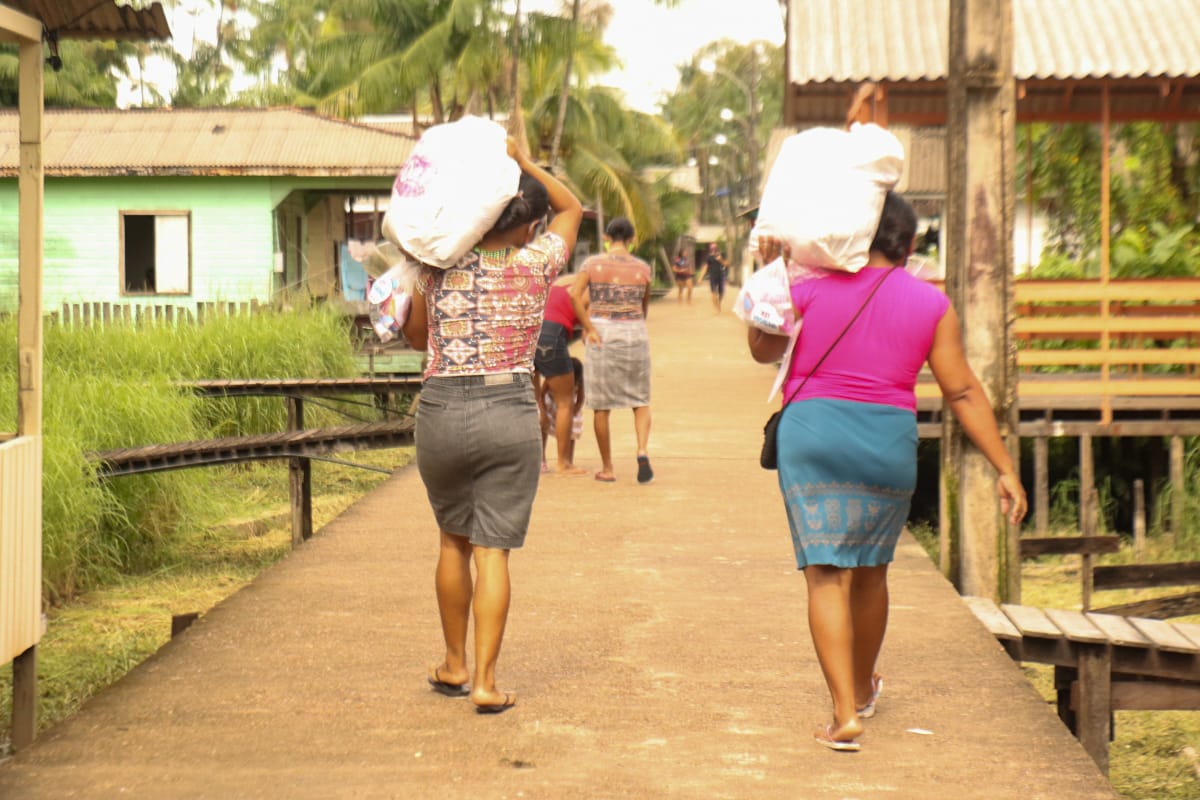Get to know the actions of the Central Única das Favelas in Amapá
In the context of the Covid-19 pandemic, CUFA, together with its network of volunteers, was essential in providing support to families in situations of economic and social vulnerability.


Credit: Dayane Oliveira Ferreira
By: Gabriel Murga / Lupa do Bem – Favela em Pauta
In the state of Amapá, the Central Única das Favelas (CUFA) carries out activities in the areas of education, leisure, sports, culture and citizenship, such as graffiti, DJ, break, rap, audiovisual, street basketball, literature, among others. social projects.
In the context of the covid-19 pandemic, CUFA, with its network of volunteers, was essential in providing support to families in situations of economic and social vulnerability.
“In addition to the populations that live in the territories where the CUFA centers are located, we try to contemplate other segments in situations of vulnerability such as indigenous people, quilombolas, transvestites and transsexuals. In this context of transition, we are focusing efforts to create actions that promote economic autonomy for women”, says Alzira Nogueira, coordinator of CUFA in Amapá*.
There are 8 centers of activity throughout the capital of Macapá, which involve actions throughout the state, currently bringing together 61 volunteers, residents of various communities who have the support of partner entities in their work.

The result of CUFA’s work in Amapá
In the last year, between April 2020 and March 2021, more than 35 thousand families were served through direct actions carried out by CUFA with partners and volunteers.
This performance is reflected in the main focus of the organization’s work: food security, digital empowerment and entrepreneurship.
In this field, actions to guarantee food security and income transfer raised more than R$ 680 thousand in the state. More than 2,900 food cards were distributed, delivered through the “Mães das Favelas” project, in addition to more than 39 tons of food and 60,000 hygiene kits.
In addition, around 1,100 basic food baskets are distributed monthly in the municipalities of Macapá and Santana.
“Amapá is in a serious situation of poverty. There are data that indicate that 56% of the population of the state is in poverty. Hunger is a tragic reality on the outskirts, in hangover areas across the state. In addition, populations live with a lot of violence. It’s a very difficult scenario,” Alzira Nogueira told Lupa do Bem.


“Our efforts are important, but still small to face this reality. It is important to remove from invisibility those populations that are on the periphery of the periphery”, points out the coordinator of the Central Única das Favelas.
Amapá Solidário Network: joint action with support from CUFA-AP
Fruit of a partnership between the Public Ministry of Labor (MPT-PA/AP), the United Nations Organization Specialized in Infrastructure, Purchases and Project Management (UNOPS), the Amapá Solidarity Network and the Center for Social Activities of the Periphery (CASP) , the initiative aims to bring food security, working to reduce the impacts caused by the coronavirus pandemic in Amapá.
The actions are focused on areas of greater social vulnerability and risk of spreading cases of covid-19 and, at this stage, the project relies locally on the distribution logistics of the Central Única das Favelas in Amapá, which delivered more than 4,000 basic food baskets. – serving more than 12 thousand people in the state.
“CUFA-AP is one of the organizations that boosted the Amapá Solidarity Network, which acted more strongly last year and [which] in the second half of 2021 is executing a partnership with Vale”, concluded Alzira.
CUFA’s Locations in Macapá
Zero’s neighbourhood; Equatorial Garden Neighbourhood; Congos district; San Jose Complex; Neighbourhood of Novo Buritizal; Axé Bridge; Baixada Pará; Novo Horizonte district; Macapaba Set; Quilombo of Ilha Redonda; Quilombo of Lagoa dos Índios; Quilombo do Curralinho; Quilombo do Ambé; Quilombo of São Pedro dos Bois; Campina Grande Quilombo; Quilombo do Mel; Quilombo do Rosa; Quilombo da Casa Grande; clod of Matapi; Matapi Line; and in the Bailique Archipelago District.
To support and learn more, click here.


